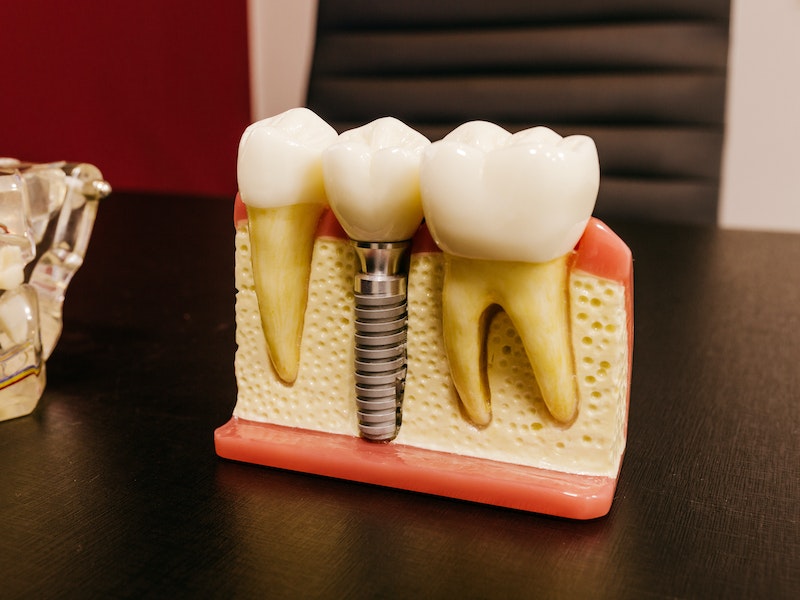
What Are Dental Implants and How Do They Work?
Dental implants are innovative solutions for replacing missing teeth, providing functional and cosmetic benefits. These medical devices consist of titanium posts surgically implanted into the jawbone, acting as sturdy roots for artificial teeth. Over time, they fuse with the jawbone through osseointegration, ensuring stability and longevity. Dental implants help restore oral health, enhance chewing ability, and improve overall confidence, making them a popular choice in modern dentistry.
They are designed to mimic the look and function of natural teeth, providing a long-lasting and durable option for dental restoration. Here’s a comprehensive look at what dental implants are and how they work:
1. Definition of Dental Implants
Dental implants are artificial tooth roots made from biocompatible materials, typically titanium. These implants are surgically placed into the jawbone to provide a stable foundation for a replacement tooth or bridge. Over time, the implant integrates with the bone through osseointegration, ensuring a secure and permanent fit.
2. Components of Dental Implants
Dental implants consist of three main components:
-
Implant Post: This is the titanium screw that is surgically inserted into the jawbone.
-
Abutment: A connector piece is attached to the implant post and supports the crown.
-
Crown: The visible part of the tooth that is custom-made to match your natural teeth’ shape, size, and color.
3. The Implant Procedure
The dental implant procedure done by a dentist in Las Vegas typically involves several stages and may take a few months to complete.
-
Initial Consultation: During the initial consultation, your dentist will evaluate your oral health, take X-rays or 3D scans, and develop a personalized treatment plan.
-
Surgical Placement: In the next stage, the implant post is surgically placed into the jawbone. This procedure is usually done under local anesthesia, and sedation may be used if needed.
-
Healing and Osseointegration: After placing the implant post, it takes several months for the implant to fuse with the jawbone. This process, known as osseointegration, is crucial for the implant’s stability.
-
Placement of Abutment: Once osseointegration is complete, the abutment is attached to the implant post. This minor surgery is often performed under local anesthesia.
-
Crown Attachment: Finally, a custom-made crown is attached to the abutment, completing the restoration. The crown is designed to blend seamlessly with your natural teeth.
4. Benefits of Dental Implants
Dental implants offer numerous advantages over other tooth replacement options:
-
Natural Appearance: Implants look and feel like natural teeth, enhancing your smile and overall appearance.
-
Improved Functionality: Unlike dentures, implants are stable and do not shift in the mouth, allowing you to eat, speak, and smile confidently.
-
Bone Preservation: Implants stimulate the jawbone, preventing bone loss that often occurs with missing teeth.
-
Durability: With proper care, dental implants can last a lifetime, making them a cost-effective solution in the long run.
-
Oral Health: Implants do not require the alteration of adjacent teeth, as is necessary with traditional bridges, helping to maintain overall oral health.
For those looking to replace an entire arch of teeth, All-on-4 dental implants offer a reliable and efficient solution that combines these benefits while providing comprehensive restoration.
5. Suitability for Dental Implants
Only some people are ideal candidates for dental implants. Suitable candidates typically:
-
Have healthy gums and sufficient jawbone density to support the implants.
-
Are non-smokers willing to quit smoking, as smoking can impede the healing process?
-
Maintain good oral hygiene practices and regular dental visits.
-
Have no untreated dental issues or chronic diseases that could affect healing.
Additionally, those who have undergone wisdom tooth extraction Las Vegas may also be evaluated to ensure no complications could affect their suitability for dental implants.
6. Aftercare and Maintenance
Caring for dental implants is similar to caring for natural teeth. Good oral hygiene practices, such as brushing twice a day, flossing daily, and regular dental check-ups, are essential for the longevity of your implants. Avoiding hard or sticky foods that could damage the implant is also recommended.
7. Potential Risks and Complications
While dental implants have a high success rate, some risks and complications may occur, such as:
-
Infection at the implant site
-
Injury or damage to surrounding structures
-
Nerve damage
-
Sinus problems
8. Comparing Dental Implants to Other Options
Dental implants offer superior comfort, function, and aesthetics compared to dentures and bridges. Dentures can be uncomfortable and slip out of place, while bridges require altering adjacent teeth. Implants, however, provide a standalone solution that preserves natural tooth structure.
9. Cost of Dental Implants
The cost of dental implants varies depending on factors such as the number of implants needed, the complexity of the case, and geographic location. While the initial cost may be higher than other options, the longevity and benefits of implants make them a worthwhile investment.
Wrapping Up
Dental implants are a reliable and effective solution for replacing missing teeth, offering numerous benefits such as a natural appearance, improved functionality, and long-term durability. The implant process involves several stages, from initial consultation to final crown placement, ensuring a secure and permanent restoration. By maintaining good oral hygiene and regular dental check-ups, you can enjoy the benefits of dental implants for many years, improving both your oral health and quality of life.

